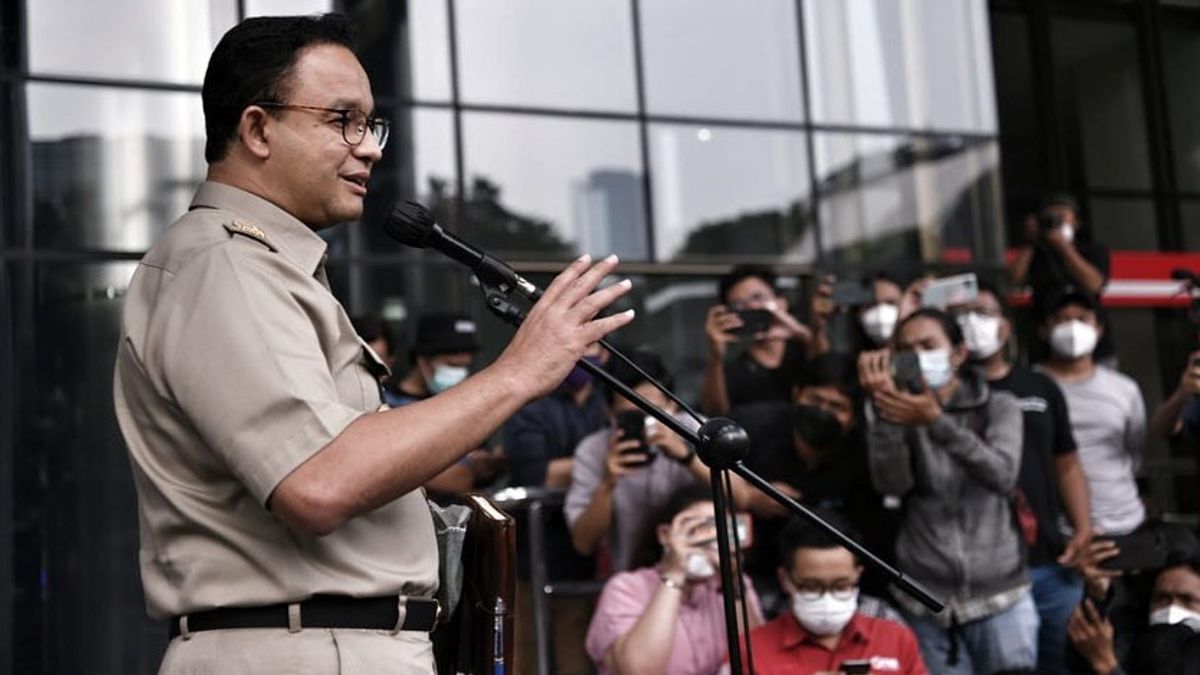JAKARTA - DKI Jakarta Governor Anies Baswedan said to coincide with the 77th Anniversary of the Republic of Indonesia, his party began to implement Governor Regulation Number 23 of 2022 concerning PBB-P2 with the main aim of avoiding subtle evictions due to taxes.
The reason, said Anies, is that the value of land and buildings in Jakarta is among the highest and always experiences a continuous increase which arguably does not lead to justice and equality as well as an increase in the economy.
"If this is ignored, the land and building tax (PBB) policy is unwittingly a policy of politely expelling citizens," said Anies as quoted by ANTARA, Wednesday, August 17.
Anies said those with low incomes or weak economic conditions were the first to be affected by the burden of the UN. In fact, a house is a basic human need, a basic human right to be able to live. Therefore, the DKI Jakarta Provincial Government has taken this policy.
The seriousness of implementing the tax policy, called Anies, brings justice and equality to the people in Jakarta equally, marked by the issuance of the 2022 PBB-P2 Electronic Tax Return (e-SPPT) to 25 representative taxpayers from each administrative city in DKI Jakarta. in the event "Jakarta Tax, Fair and Equitable For All" at RPTRA Madusela, Sawah Besar, Central Jakarta, to coincide with the commemoration of the 77th Indonesian Independence Day.
In the spirit of celebrating independence, the DKI Provincial Government gave a gift in the form of a fair and equitable tax policy for all Jakarta residents. This fair and equitable tax policy is also a concrete manifestation of Pancasila as the basis of the Indonesian state present in the lives of the people of Jakarta, namely the fifth principle of Social Justice for All Indonesian People.
With this policy, said Anies, buildings whose value is below Rp. 2 billion will be exempted from the PBB.
The basis for making the policy, he continued, is to consider the minimum area of land and buildings for simple healthy houses, which is 60 square meters for the earth and 36 square meters for buildings.
"This basis refers to the PUPR Ministerial Regulation which has regulated the minimum standard of living (housing)," he said.
The English, Chinese, Japanese, Arabic, and French versions are automatically generated by the AI. So there may still be inaccuracies in translating, please always see Indonesian as our main language. (system supported by DigitalSiber.id)








